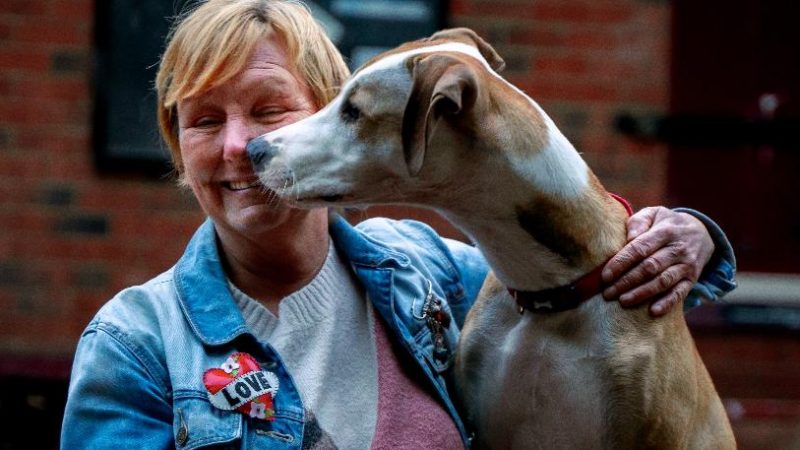
After clinical research nurse Barbara Campbell spent a decade working with bowel cancer patients, the last thing she expected was to be a patient herself.
Since 2011, Barbara, 63, has worked at the University Hospital of North Tees to encourage people to complete their bowel screening tests and deliver results and diagnoses.
She previously worked in the bowel screening department and now works as a clinical research nurse. Her work involves identifying early signs of cancer.
In February 2021, Barbara received the news that she had stage 3 bowel cancer. This would require surgery and chemotherapy at her local hospital – her workplace.
Her diagnosis came after she completed a routine bowel screening kit, despite having no symptoms or signs of cancer.
Barbara said: “I was invited for a colonoscopy at North Tees and I wasn’t particularly worried. I expected to get a bit of a lecture about eating my five a day, cutting down on drinking and taking better care of myself.
“Instead they found quite a large cancer.”
On 16 March, Barbara underwent surgery to remove the large tumour and a portion of her bowel. This was followed by six months of oral chemotherapy treatment in three week cycles.
A real outpouring of love and support
Right from diagnosis, she felt well supported by her daughter Shaunagh, son Robin, her partner Steve, friends and her colleagues at the hospital.
Barbara continued: “I felt a real outpouring of love – I had so many cards, gifts, food and kind wishes. It’s strange to be told how much you’re loved when it’s such a worrying time.
“I did use it to my advantage though. I played the cancer card and told my family they couldn’t not let me get a dog. So we got Degsy.
“He sat with me under blankets in the garden, watched Netflix on the sofa with me and made me go for walks. He was a really positive thing to come out of this situation.”
While undergoing chemotherapy, Barbara returned to work two-days-a-week to take on light duties. She return because she was struggling with her mental health and feeling cut off from her friends at the hospital.
By the time she finished her treatment in November, she was working full-time and going to the gym three days a week.
“I didn’t think it would happen to me. Even though I know the odds, I seriously thought it was something that would happen to other people. Please do your poo test.
“The earlier you catch bowel cancer, the earlier your treatment can start and the better your chances of survival are.”
Looking back on the beginning of her journey through cancer, Barbara said: “I was diagnosed in the middle of Covid. I didn’t have any symptoms and I would never have made an appointment to go to the doctor.
“When I think back, I was very tired. But so was everyone else – we were working in research in the NHS during a global pandemic.”
When she was diagnosed, Barbara was working as part of the RECOVERY study to test potential treatments for COVID-19. She is now working on a project called colo-detect which uses artificial intelligence to identify polyps before they have the chance to turn cancerous.
About bowel cancer and screening
Bowel cancer is the second biggest cancer killer in England but it is treatable and curable, especially if diagnosed early.

Everyone aged between 60 and 75 is invited to take part in bowel screening and complete a FIT (faecal immunochemical test) kit every two years from their home. 56 year olds are also able to take part and the test is being extended to include younger age groups.
To complete the test, a small sample of poo is sent to a lab and checked for tiny amounts of blood.
This blood can be a sign of bowel cancer or polyps – these are growths in the bowel which may turn cancerous over time.
Last year, Tees Screening Centre received 72,759 completed kits. 1,632 of these showed blood in the sample, resulting in 97 bowel cancer diagnoses.
Contacts
For more information about bowel screening, please call the Tees Screening Centre Helpline on 01642 383981 or 0800 0151 506.
More information is also available on our bowel screening page.
